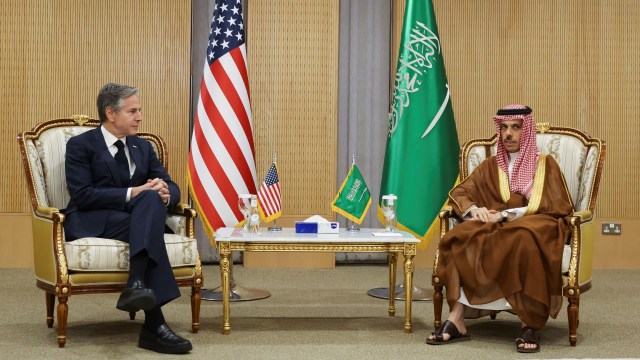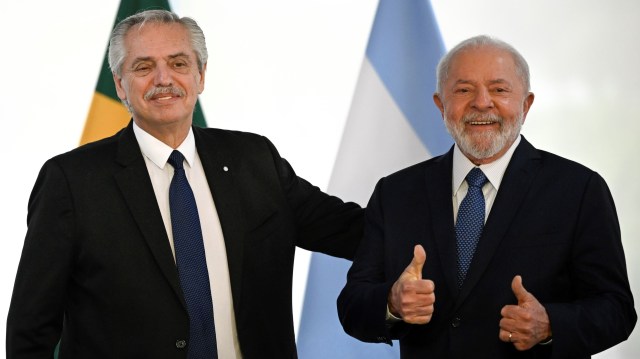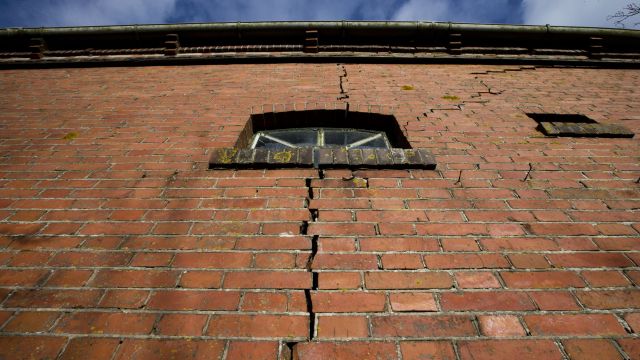Today at WPR, we’re covering the costs for the U.S. of a potential Saudi-Israeli normalization deal as well as Latin America’s overdue generational leadership transition.
But first, here’s our take on today’s top story:
Slovakia: The party of highly controversial three-time former PM Robert Fico won Slovakia’s parliamentary elections, leading with about 23 percent of the vote. A populist, Fico opposes military support to Ukraine and has echoed narratives about the war promoted by Russian propaganda, while adopting the rhetoric of the far-right. (Washington Post)
Our Take: Considering Fico’s openly pro-Russian stances, Slovakia’s election has been framed by its implications for EU unity on the war in Ukraine. While that framing is certainly important, it is overshadowing the more significant implications of the election outcome.
After all, as Andrew MacDowall wrote in his election preview, because Slovakia has a parliamentary system, Fico can only become PM with a coalition. His most likely partner will be HLAS, a party that is also populist in many ways but whose leader backs the EU stance on the war in Ukraine. That means that if Fico comes to power—which, to be clear, is not guaranteed—he is more likely to tone down his pro-Russian rhetoric than not.
Get the Daily Review sent straight to your inbox every weekday.
Indeed, the bigger takeaway from this election is the current electoral power of populist politics in Central and Eastern Europe. Poland, which heads to the polls for its own general election on Oct. 15, is currently governed by a populist party that is leading in opinion polls. That party, however, has been and largely remains a staunch supporter of Ukraine.
Put simply, while it may be true that many populist parties in the region are sympathetic to Russia, their views on the war in Ukraine are not the main driver of their support, nor are those views likely to affect the EU position on Ukraine as much as many fear. But they could have more far-reaching implications for the rule of law, especially if Brussels prioritizes the need for unity on Ukraine over countering democratic backsliding.


The Saudi-Israeli Normalization Deal Doesn’t Add Up for the U.S.
Although the details are not yet known or even finalized, the rough contours of a normalization deal between Saudi Arabia and Israel are clear: In exchange for normalization, Saudi Arabia would receive a formal security guarantee from the United States, along with technical assistance on its civilian nuclear program.
Critics of the proposed deal have focused on Riyadh’s human rights record. But the real problem is that it would do little to advance U.S. interests.
As Emma Ashford writes, the stated goal of normalization between Israel and the Arab states is admirable and achieving it would be historic. But it’s simply not worth the price the Biden administration appears willing to pay.
Latin America Needs a New Generation of Leaders
In his weekly column, James Bosworth highlights a regional trend in Latin America: An older generation of leaders is refusing to cultivate the next generation of leadership, clinging to power instead of handing the top spots off to their successors.

That’s not to suggest that older politicians can’t make good or even great presidents. But the fact that such a large number of countries in Latin America have leaders at or beyond the retirement age signals that something is not quite right with the region’s representative democracies.

Question of the Day: Which of the five Central Asian countries has been particularly strong in signaling its interest in expanding ties with the United States?
Find the answer in the latest WPR Weekly Quiz, then read Michael Rossi’s briefing on U.S. engagement with countries in Central Asia.

The CEO of the state-run Abu Dhabi Oil Co., Sultan al-Jaber, called on the attendees of an annual oil and gas industry conference hosted by the UAE to play a central role in fighting climate change, even as the industry boosts production. Al-Jaber also happens to be the president-designate of the upcoming U.N. COP28 climate talks, which the UAE will host later this year as well.
Now in its 28th year, the COP event has become a key part of the international community’s annual calendar, with nearly 50,000 delegates in attendance at last year’s edition. As Bill McGuire wrote earlier this year, though, the whole COP process has become increasingly compromised by the growing involvement of the oil, gas and coal corporations.

The U.N.’s Climate Change COPs Need an Intervention
April 4, 2023 | COP climate change conferences were meant to tackle the climate crisis. The fossil fuel lobby has ensured that they haven’t. Read more.
Dutch authorities halted extraction at the Groningen gas field, Europe’s largest, on Sunday, though they will keep 11 wells open for another year as a fallback option before closing the facility down permanently. The local population near the site have been terrorized by low-magnitude earthquakes for more than 20 years, leading the government to announce in 2018 that the field would close.
As Frida Ghitis wrote last year when production was slashed in anticipation of the closure, the decision served as a painful reminder of the politically fraught choices that many European governments are having to make as they try to wean themselves off of Russian energy supplies.
Earthquakes in the Netherlands Just Added to Europe’s Energy Crisis
Oct. 13, 2022 | The Netherlands is slashing production at a major gas field, reflecting the a common issue across Europe ahead of the looming energy crisis. Read more.

More From WPR
- Paul Poast on civil-military relations.
- Thomas Graham on a rift in Bolivia’s ruling party.
- Frida Ghitis on Colombia’s cocaine boom.
- Aude Darnal on the term “Global South.”

